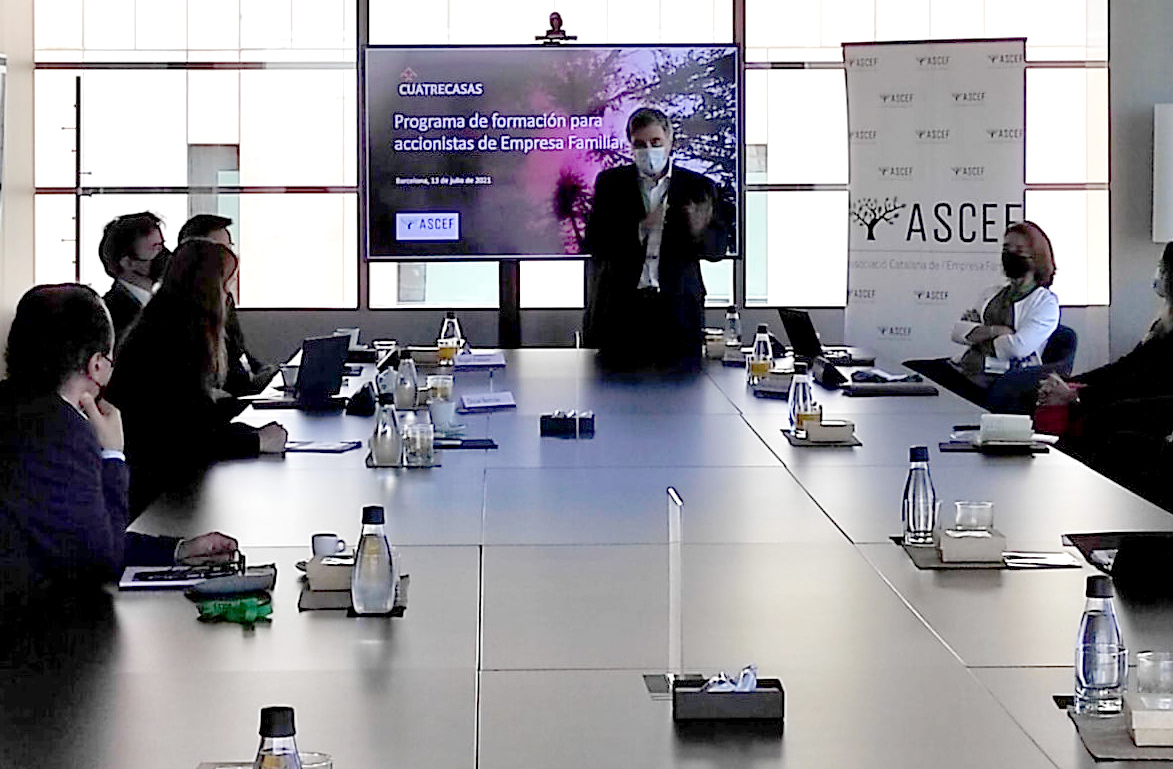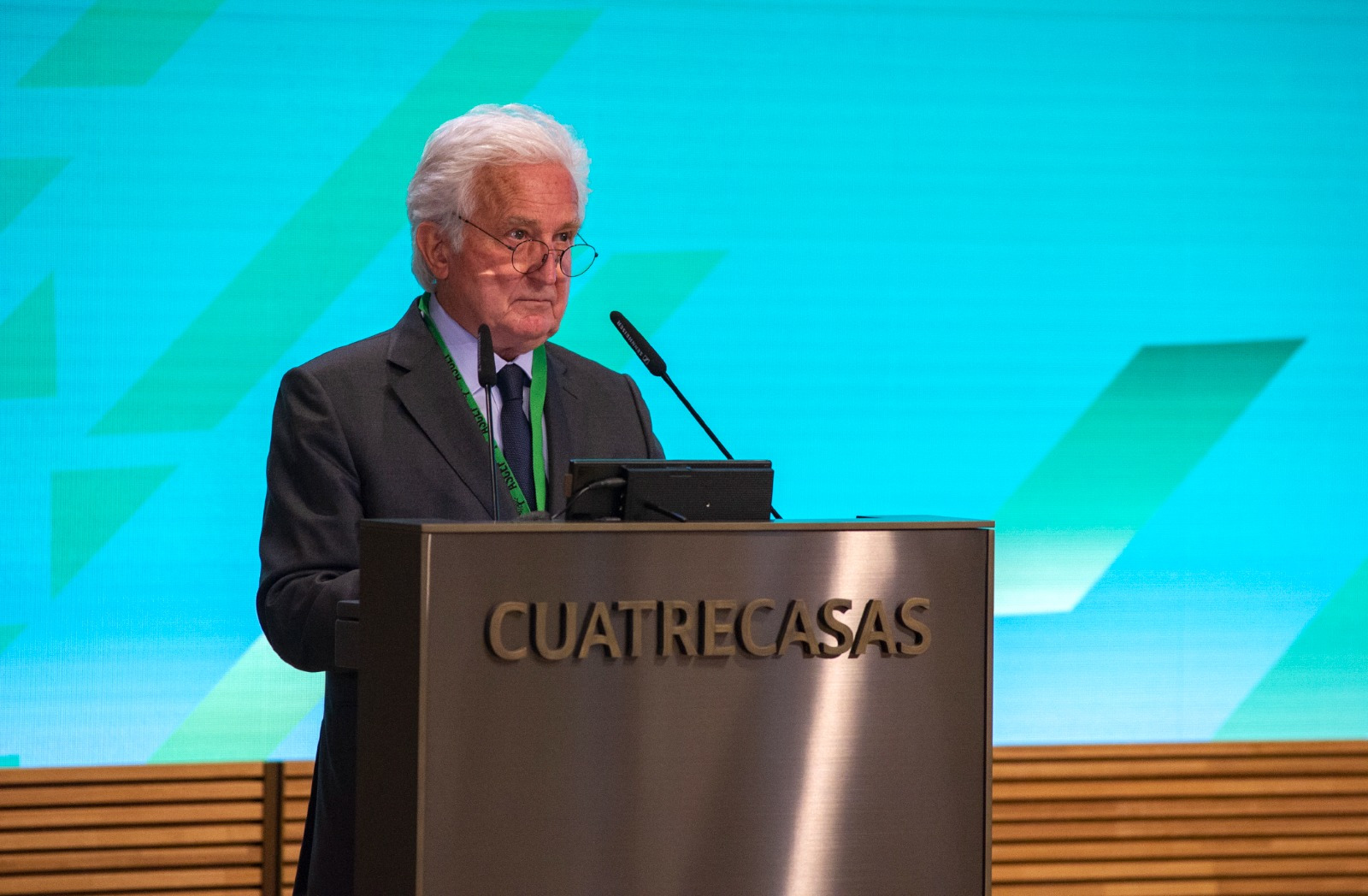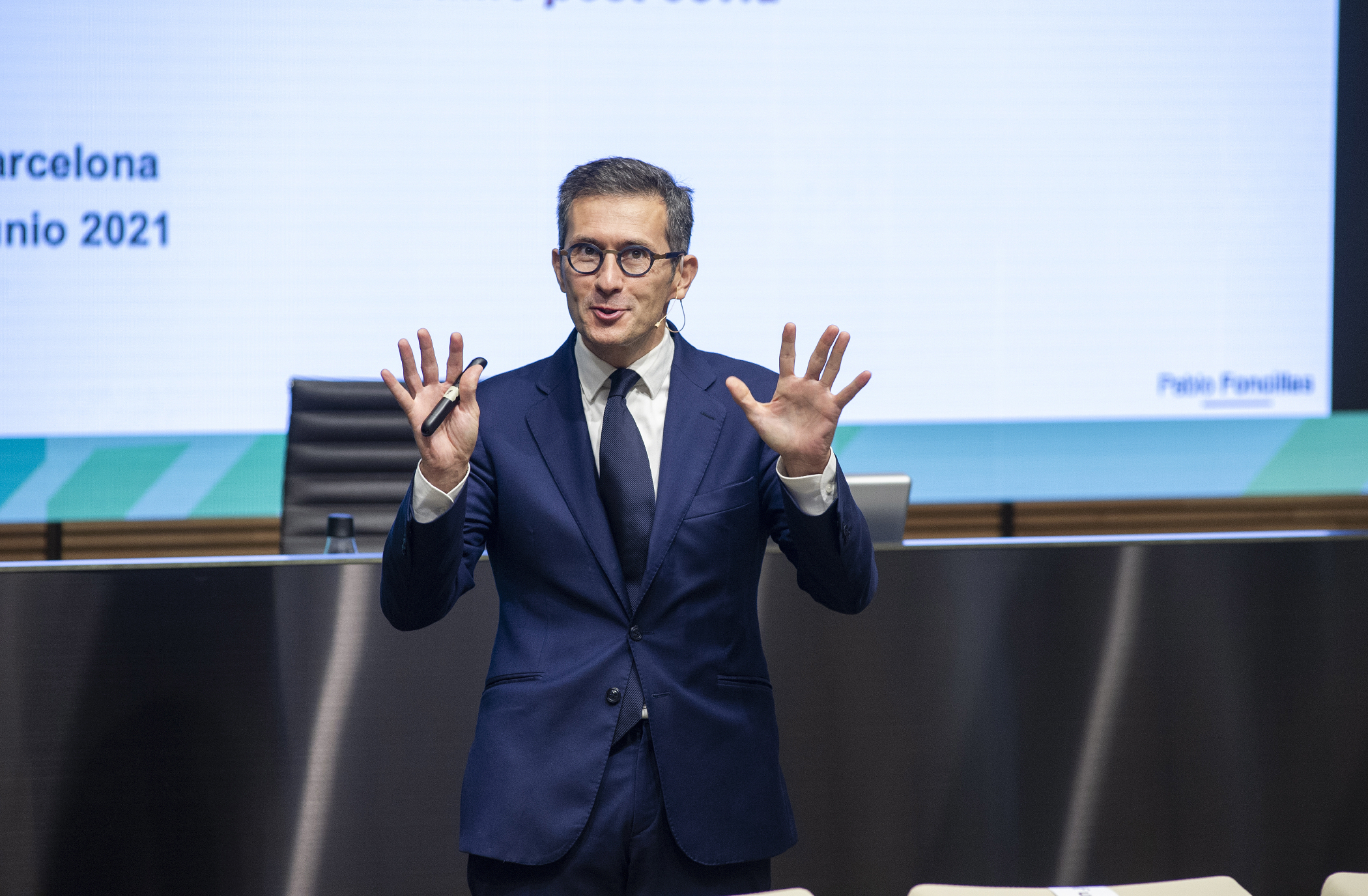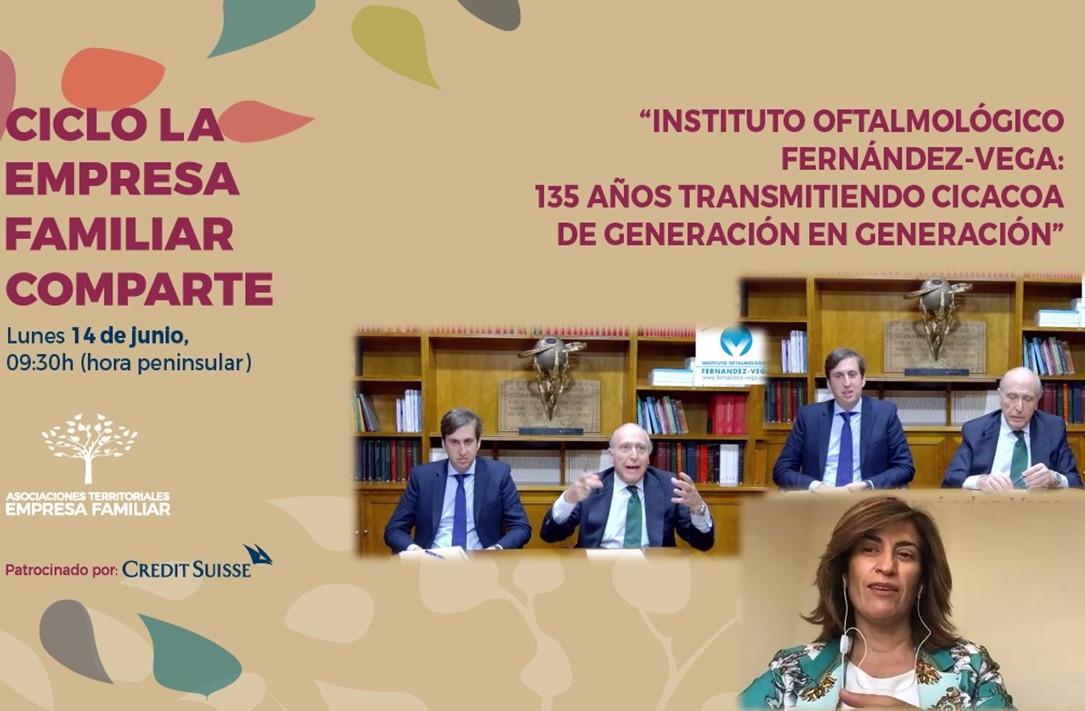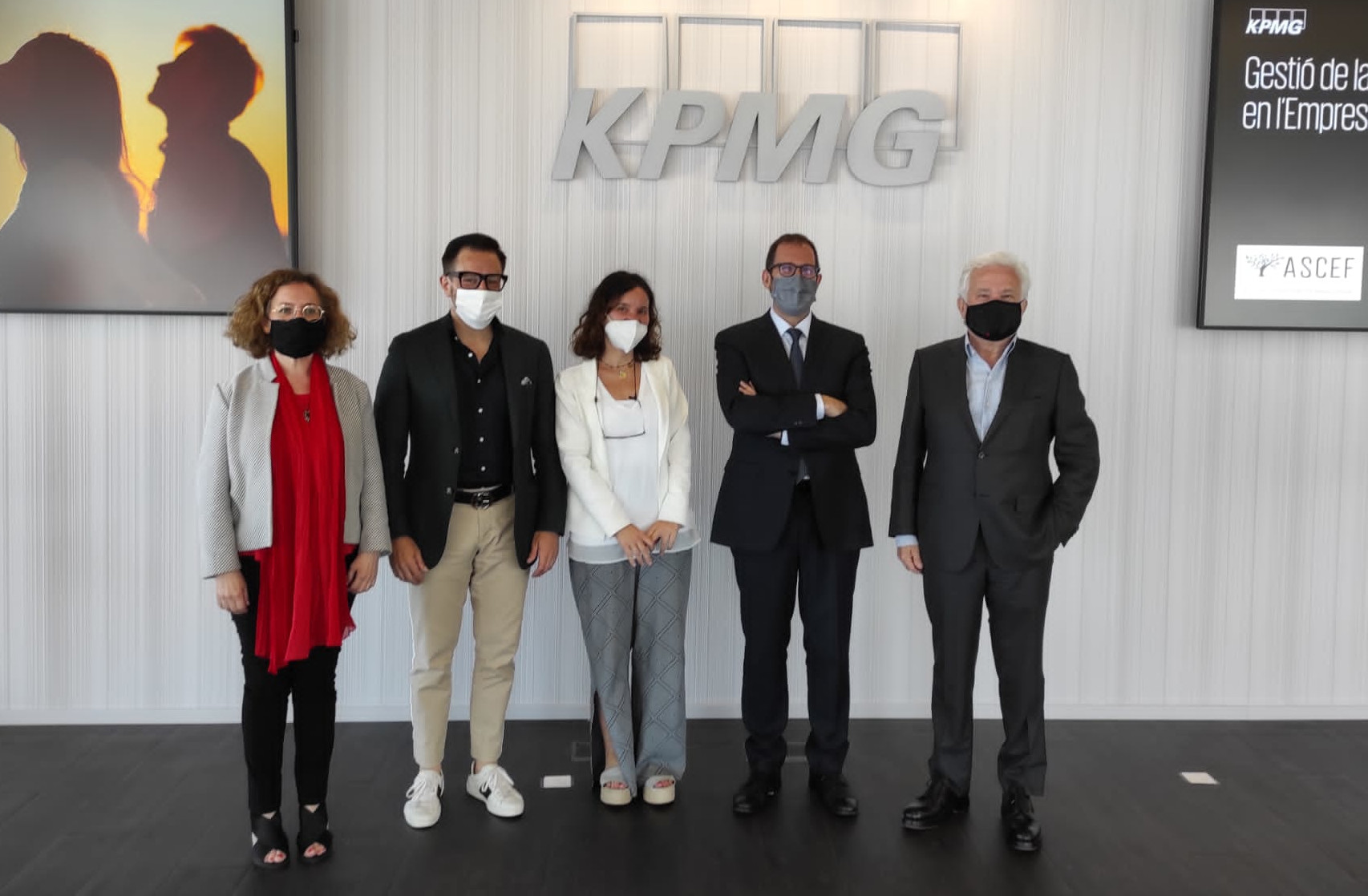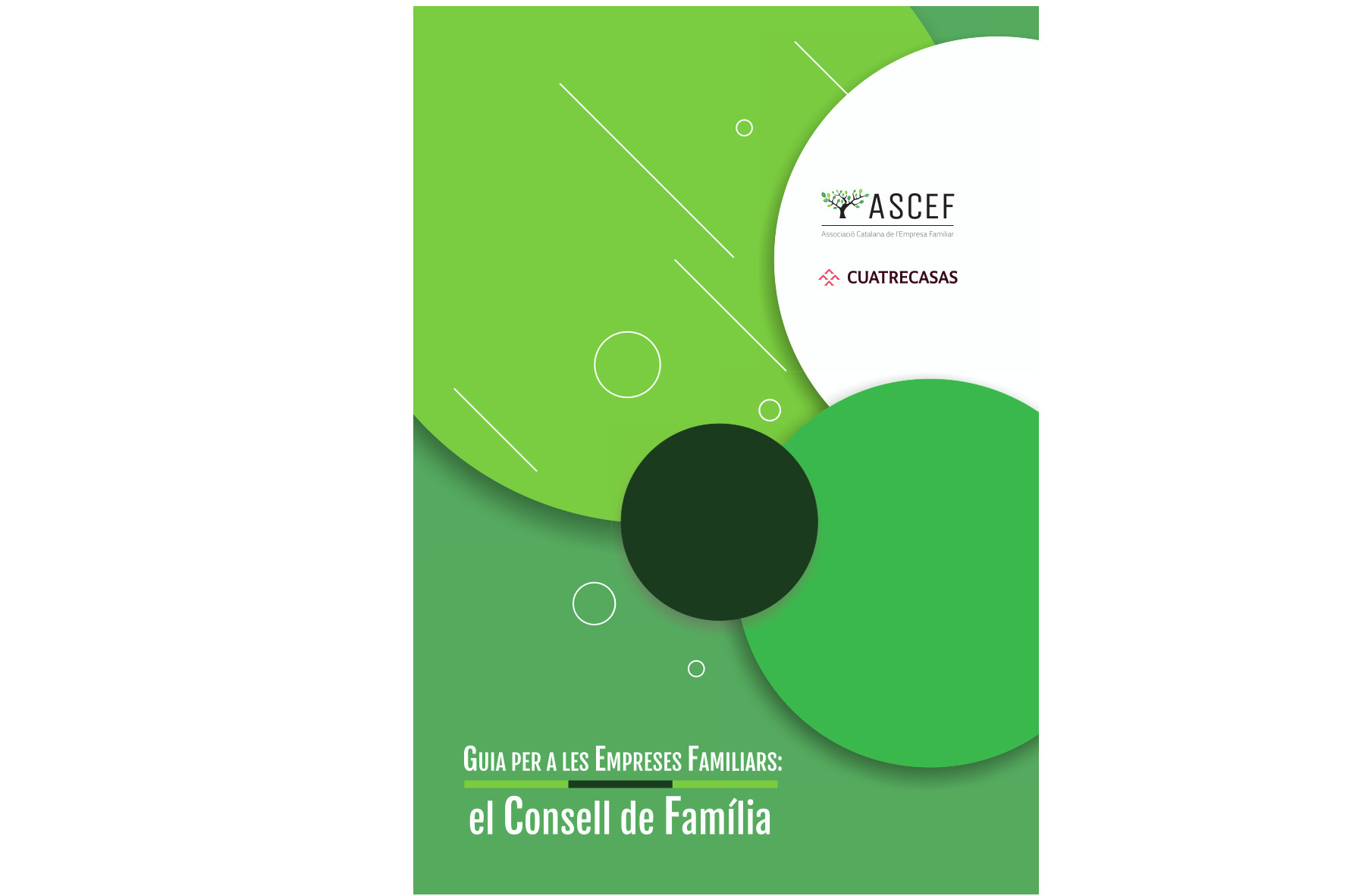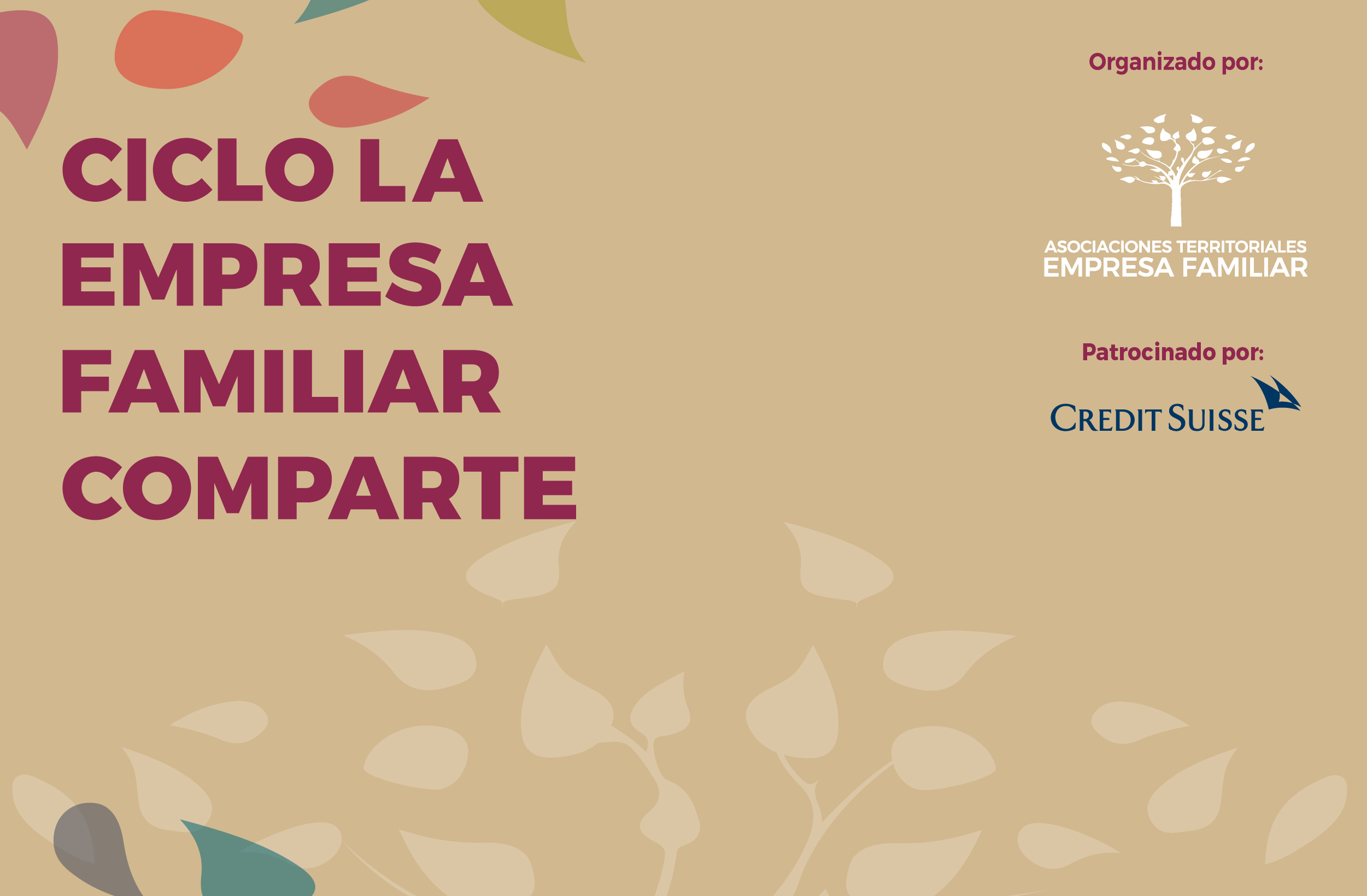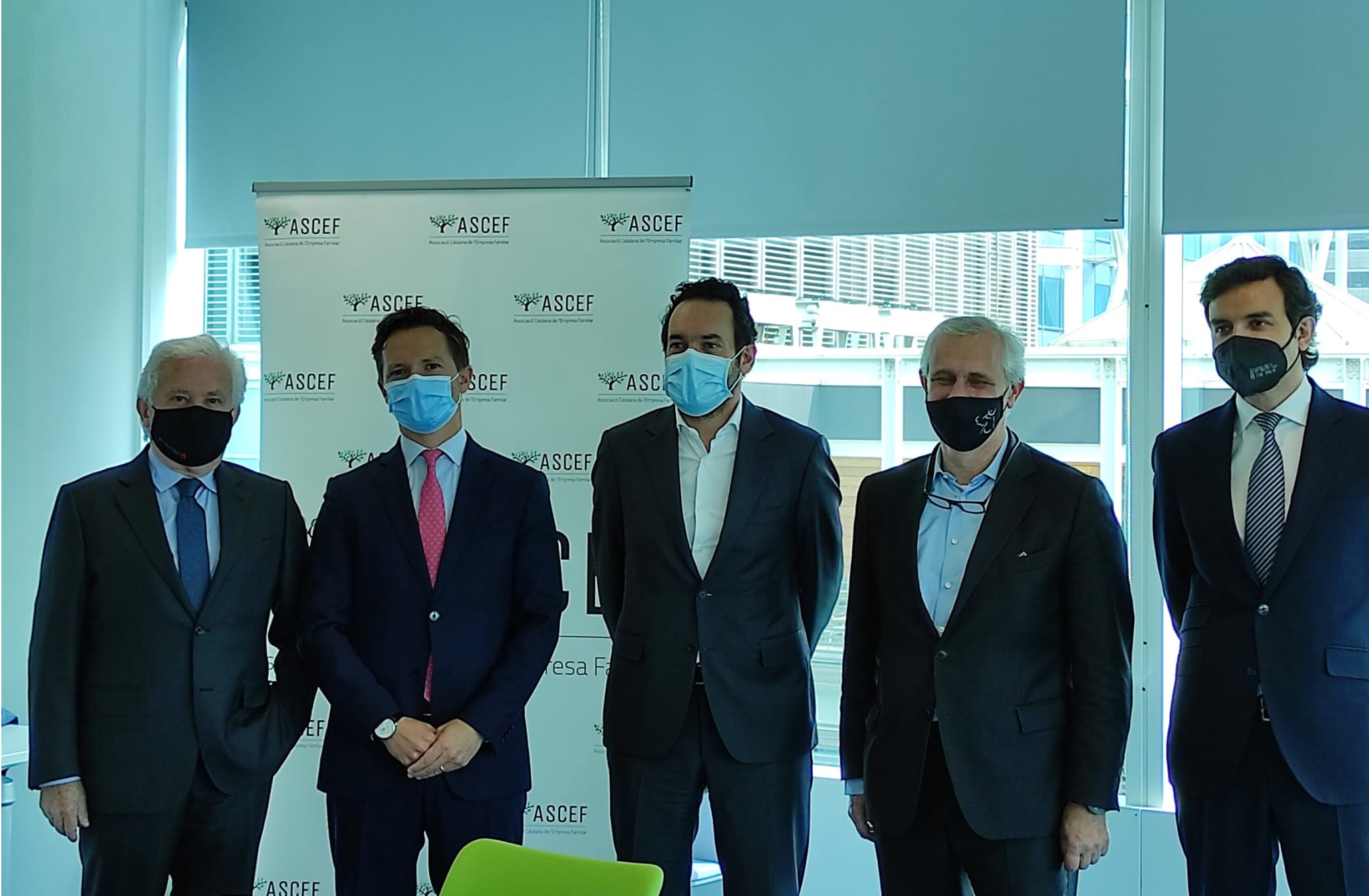- “We reinforce our values through protocols in order to ensure success in business successions and continuity”
- The Ophthalmology Institute Fernández-Vega takes part in the second session of “The Family Business Shares” conference series
The conference series “The Family Business Shares“, organized by Family Business Territorial Associations including the Catalonian Family Business Association (ASCEF), has held a new online session attended by the prestigious ophthalmologists of the Fernández-Vega family, Professor Luis Fernández-Vega and his son, Doctor Luis Fernández-Vega Cueto-Felguerosoen; a webinar that was moderated by the journalist Ana Samboal.
The main goal of “The Family Business Shares” series is to share and learn about new trends in family business management, hand in hand with family business leaders at domestic and international levels, as it is the case of the Instituto Oftalmológico Fernández-Vega, main participant in this edition. With a trajectory of 135 years through five generations of specialists, the Fernández-Vega family maintains its legacy handing down through generations what they call CICACOA, Spanish acronym for science, love, comprehension, and spirit.
The company as a necessity
Being an entrepreneur was not in Fernández-Vega’s plans, but the high demand from patients forced them to expand and gradually increase their employee volume becoming more professionalized. As Luis Fernández-Vega Cueto-Felgueroso points out: “the medical calling always prevails. That is clear to us. However, it is true that at home we felt that we needed to be prepared for what was coming upon us, there was a business task behind“. Since its origins in 1886, they made a clear bet on international education, something that contributes to the business itself thanks to the knowledge base it provides.
The Instituto Oftalmológico Institute Fernández-Vega was recently recognized by MRS, leading healthcare ranking in Spain, as the country’s best private ophthalmology center, where almost every month tempting offers are heard and never examined, since there is something more valuable for this family: “We have our own values, and that is very difficult to measure. Being part of a different group may make us lose our identity, the reason of being of our institution. That is what has led us where we are“.
Succession protocols
Protocols play a fundamental role in the family business operation governing aspects like incorporation of new company members, shareholder structuring and succession plans. “In order to be a shareholder, you need to work at the company and meet certain requirements. So, we currently have three shareholders, even though there are more family members at the company, and that helps us make decisions“, affirms Professor Luis Fernández-Vega.
They also have a family protocol dictating how to train a family ophthalmologist willing to participate in the business, how many years he should work abroad or how management should be professionalized. The limit age to perform surgery has been set at 75 years old, as senior Luis indicates: “one must leave places amid applause not boos. You cannot deny reality and you must know when to quit, and if conditions are not optimum, you cannot be a burden for the organization“.
The Family Business Shares
In joint collaboration and providing value to more than 1,200 associated family enterprises, all the network of Family Business Territorial Associations takes part in the conference series “The Family Business Shares” sponsored by Credit Suisse, an entity committed to the needs and realities of family enterprises.
The Family Business Territorial Associations constitute a non-profit network born to support and advocate for family enterprises in Spain, which seeks to contribute to their development and strengthening. Standing out among its main goals is to be an institutional, business, and social reference for the family business reality in each autonomous region. These associations are linked to the Family Business Institute (IEF), the Family Business Network (FBN) and the European Family Business (EFB).
They encompass over 1,100 family companies related to production operations that share family business values such as stability and tenacity (long term vision), commitment (to new generations, employment, and sustainability) as well as entrepreneurial and hard work culture.
